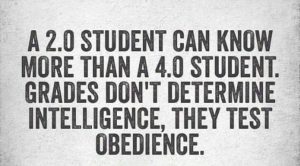I was a Social Science major in college, with an emphasis in secondary education. I took as many courses on the American colonial era and westward expansion as I could. This turned out to be wonderful preparation for writing fantasy novels. ~ Rae Carson, Credit to brainyquote.com
I was a social science major, too. I have a B.A. in Political Science, an M.B.P.M. in Business and Public Management, and an M.A. in Secondary Education. Technically, I specialized in high school mathematics, but I am certified or endorsed to teach the whole core curriculum, as well as French and Spanish. I like research. I like reading nonfiction, although I also enjoy science fiction, mysteries and other genre fiction.
Sometimes I wince to read the results of social science studies, though. Here’s one that hit the net a few weeks back.
Study: Teacher Evaluation Scores Linked to Job Satisfaction By Brenda Iasevoli on February 7, 2017 7:00 PM
High performance ratings lead to higher job satisfaction among Tennessee teachers, researchers at Vanderbilt University and the University of Missouri discovered. (Oh, mother help us all. How much money did these guys spend to get these results?) The studies showed high effective ratings in evaluations changed attitudes, causing teachers’ views of their work to improve. Amazingly, the opposite was also found to be true: Low performance ratings led to decreased job satisfaction.
Sigh. Credit Matthew G. Springer, an assistant professor of public policy and education at Vanderbilt University for these insights. I don’t want to seem too snarky. We have reached the point where common sense seems never to be enough, so we must have the data. I’ll grant that Professor Springer’s work should enable long-overdue discussions to move forward.
Yes, when a teacher has worked nonstop all year to do his or her best, those dings in an evaluation can be a real downer. Some teachers are perfectionists, too. If their Charlotte Danielson rubric numbers average out to be perfectly acceptable or even good, each lower number of that twenty-one page evaluation may be a personal stab in the heart. There’s almost no way to make a twenty-some page evaluation without throwing in enough average or below average numbers to do some damage. Average is a “C” in the world of education. For that teacher who gave up half or more or every weekend and evening all year, average ratings in various categories across all the many categories may well hurt. Enough of those ratings and the sensitive may say, “Enough. I think I’ll return to insurance claims adjusting for Allstate. At least I was appreciated there.”
Eduhonesty: My picture above applies to students and teachers. Grades don’t determine intelligence, they test obedience.
Here’s another news flash: Grades can also knock teachers as well as students out of the game. Some students respond to ongoing poor grades by redoubling their efforts. Some teachers respond to regular, institutionalized criticisms intended to improve them by saying, “I will work harder.” But some students quit. So do some teachers.

